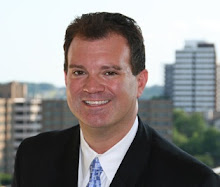Recently, I came up with this:
Age is an organic construct, not a mechanical nor a celestial one. Therefore, it is inappropriate to measure one’s age by the ticking of a clock or the revolution of a planet around a star.
I've heard that my little aphorism has gained some attention. It reflects that people wrestle with their inner and outer perceptions of age and how they compare themselves to others today in our culture as well as historically. We look at our elders and think of how we would like to look and feel better than they when we reach their age, and yet we miss the larger point that it is not about looking and feeling one's age, but looking and feeling good. Period. There may be a correlation with the calendar, but with statements circulating such as "40 is the new 30" one has to ask why we should care.
The baby boomers have redefined culture again, this time around aging, and they will continue to do so over the next few decades. We can watch as the largest demographic bubble breaks many statistical limits of age and health.
I feel it is time to relieve ourselves of the shackles of calendar age. Get rid of birthdays while we are at it. Take the RealAge test. Do what it says to improve your health. Age may remain a metric, but it should take its rightful place among other metrics that only doctors and nutritionists care about.
With what should we replace the concept of calendar age? How about stages of life. Perhaps a simple five-stage model would suffice. One may be a child, an adolescent, a young adult, a mature adult, and a senior adult. No clear line would exist between categories, of course.
Calendar age defines so much about us in the public sphere. Yet, would it not be more appropriate to determine age and maturity on a case-by-case basis, as individuals? We all recognize that calendar age varies wildly with mental and emotional states. Does not the metric actually detract from the real problems that exist among people? Think of the driving or drinking ages as examples. Any reasonable person recognizes that capabilities among individuals at every stage of life vary considerably.
Even if the rejection of calendar age does not occur among policy makers, should we not adopt a more healthy and dignified characterization of age for our culture? To misapprehend the concept of age as a mechanistic metric rather than an organic stage or psychological state of a person is disingenuous. Even an insult. Perhaps a prejudice?
May 23, 2009
Subscribe to:
Comments (Atom)
